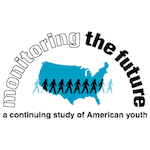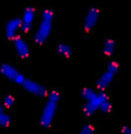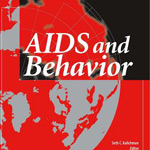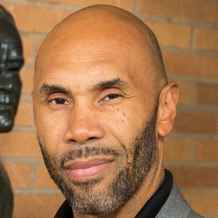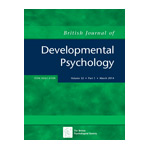New Report Examines the Status of Blacks in California Higher Education
A new report from the Campaign for College Opportunity finds that there has been no progress in closing the racial gap in enrollments and degree attainment in California over the past decade.
University of Maryland Study Identifies Educational Strengths of Black Youth
The authors state that many low-income minority children exceed their peers in self-regulation, the ability to manage behavior, emotions, and attention. These strengths impact social skills and academic success.
Study Finds Racial Disparity in Prices Paid for Similar Homes
In comparing transactions for similar homes in the same neighborhoods, the data shows that Blacks spent between 3 percent and 4 percent more than Whites.
The Persisting Racial Gap in Infant Mortality Is Not Easy to Explain
When researchers accounted for factors such as mother’s age, education level, and marital status, they found that the racial gap in infant mortality has remained stable for two decades.
Research Finds Links Between Poverty and Slower Brain Development
The study found that children raised in poverty tend to have lower rates of development in two key areas of the brain. The Black poverty rate is three times the rate for non-Hispanic Whites.
Rutgers University Scholar Leads Study on Reducing Breast Cancer Risk
Adana Llanos is an assistant professor of epidemiology at the Rutgers University School of Public Health. She holds a Ph.D. in genetics from Howard University.
The Racial Gap in Teenage Smoking Rates Has Declined But Blacks Still Smoke Less
In 2013, only 9.6 percent of African Americans in 12th grade reported smoking cigarettes in the 30 days prior to the survey compared to 19.4 of White high schools seniors.
Study Finds Racial Differences in Womens’ Ability to Lose Weight
Due to lower metabolic rates, African American women who are overweight and are trying to lose weight must consumer fewer calories or exercise more than White women to lose the same amount weight.
Rutgers University Study Finds Increase in “Concentrated Poverty”
More than 11 million Americans, 4 percent of the total U.S. population, live in these high poverty neighborhoods and 67 percent of the 11 million people in these high poverty areas are either Black or Hispanic.
Racial Differences in Arrest Records for Young Adults
A university study finds that by age 23 nearly half of all Black men and 38 percent of White men have been arrested. For women, Whites are more likely to have been arrested than Blacks.
Study Finds Exposure to Racism May Accelerate Aging in Black Men
The study examined a biomarker of systemic aging known as leukocyte telomore length. Telomeres are repetitive sequences of DNA capping the ends of chromosomes. Black men who had been exposed to the most racism had the shortest telomeres.
Penn State Researchers Identify the World’s First White Person
Light skin color provided an evolutionary advantage for people in northern climates because people with light skin can absorb more vitamin D from less sunlight that people with dark skin.
University of Pennsylvania Study Find Racial Differences in Treatment for Parkinson’s Disease
While African Americans make up 5.5 percent of all Parkinson's disease patients, this research found that only 1 percent of the patients who receive deep brain stimulation surgery, a proven method to reduce tremors, were African Americans.
The Digitial Divide Has Nothing to Do With Race
A new study published by the Pew Research Center finds that the much publicized "digital divide" between Blacks and Whites is mostly due to economic factors rather than race.
Educated Black Men Are Remembered as Having Lighter Skin Than Is Actually the Case
Researchers at San Francisco State University conducted an interesting experiment with college students that found that they remember Black people who have been identified as being successful as having lighter skin than is actually the case.
UCLA Research Finds Blacks Have More Advanced Cases of Thyroid Cancer at Time of...
A team of researchers at UCLA examined more than 26,000 cases of patients diagnosed with thyroid cancer between the years 1999 and 2008. Minorities had far more advanced cancers than Whites at the time of diagnosis.
Stanford Center on Poverty and Inequality Issues Its First Annual Report
In the report, some of the nation's leading economists examine labor markets, poverty indicators, income and wealth inequality, the safety net, and poverty's impact on health and education.
Research Finds That for Black Women, Exercise Can Fend Off Aggressive Breast Cancer
The study by researchers at Boston University and Georgetown University found that Black women who exercise at least once each week were less likely to develop an aggressive form of breast cancer than Black women who did not exercise.
African Americans With Alternative Educational Credentials
The data shows that 21 percent of Black adults in the United States have some form or alternative educational credential. For White Americans the figure is 25.6 percent. These credentials include professional certification or licensure or an educational certificate.
University of Iowa Survey Finds Widespread Racial Disparities in Children’s Health
The survey found that African American and Latino children experience lower health status, lower quality of care, higher unmet need for care, and more food insecurity than White or Asian children in the state.
Academic Study Finds Racial Differences in How Doctors Converse With HIV Patients
Healthcare providers talked about strict adherence to a drug regimen with Black patients more so than they did with White patients, regardless of whether there had been a problem with sticking to the regimen.
Racial Differences in Union Membership and Wages
In 2013, there were 2,081,000 African American union members, some 13.6 percent of all African American workers. For union members, Blacks earned 80.9 percent of the wages earned by Whites.
University of Georgia Study Links Racial Discrimination to Risk of Disease
The study found that African American youth who experience frequent incidents of discrimination are more likely than others to develop heart disease, hypertension, diabetes, and stroke.
More than 5 Million African Americans Have a Four-Year College Degree
Some 21.7 percent of all African American adults have obtained at least a bachelor's degree. Blacks have made tremendous progress, but a significant racial gap remains.
The Large Racial Gap in Advanced Placement Examination Scores
Participation of African American students in Advanced Placement programs at U.S. high schools has soared in recent years. But a huge racial gap persists in performance on AP examinations.
Examining the Gender Gap in African American Degree Attainments
There are 2,248,000 African American men over the age of 18 who have earned at least a bachelor's degree compared to 3,283,000 African American women with at least a bachelor's degree.
UCLA Study Gives a Poor Grade to Hollywood’s Progress in Diversity
Darnell Hunt, UCLA professor and the lead author, stated, "The report paints a picture of an industry that is woefully out of touch with an emerging America, an America that is becoming more diverse by the day."
New Government Data Shows a Racial Gap in Home Internet Use
New data from the U.S. Census Bureau shows that 83.6 percent of the non-Hispanic White population in the United States has Internet access in their home. For Black Americans, the figure is 68 percent.
The Advanced Placement Tests on Which Black Students Have Been More Likely to Succeed
Of the 34 AP examinations offered in 2013, African Americans scored the highest on several foreign language tests. Also the racial gap in AP scores were the lowest on many of the foreign languages tests.
Blacks Projected to Have a Higher Share of College Enrollments by 2022
The projections show that by 2022, there will be 3,940,000 African Americans enrolled in higher education. They will make up 17.3 percent of all enrollments in higher education, according to the projections.
The Growing Racial Gap in Home Ownership
Many American families use the equity in their home to finance the higher education of their children or grandchildren. This source of higher education funding is less available to African Americans.
Childhood Adversity Impacts the Adult Health of Black Men
A new study led by a sociologist at the University of Texas finds that African American men who endured childhood adversity are more likely to have physical and mental health problems as adults.
University Study Finds a Racial Bias in Pain Perception Among Young Children
Researchers asked children to rate the severity of pain that they believed other children felt when they experienced events like bumping their head or having their hand slammed in a door.
How the Great Recession Impacted the Employment Prospects of Black College Graduates
In 2001, there was almost no racial gap in unemployment rates for recent college graduates. After the Great Recession, a significant racial gap emerged.
University of Colorado Led Study Finds Physican Racial Bias Does Not Impact Treatment
The study led by a research team at the University of Colorado at Boulder found that despite the racial biases of physicians, there was no racial difference in treatment for 3,000 minority patients with hypertension.
Reducing the Racial Gap in Infant Mortality Rates
The federal government's Healthy People 2020 initiative has set a goal of reducing the infant mortality rate but a new study find that most racial and ethnic groups will fall short of the goal.







